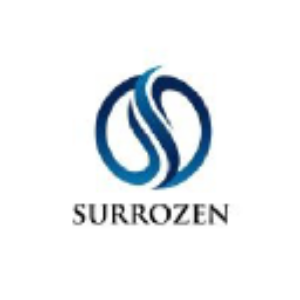Surrozen Presents Data Supporting Potential of SZN-043 at The Liver Meeting 2021, the Annual Meeting of the American Association for the Study of Liver Diseases
Surrozen (Nasdaq: SRZN) has presented encouraging data from its liver disease program at The Liver Meeting 2021. The preclinical studies of SZN-043 demonstrated improved liver metabolic function in mice, with promising non-invasive serum markers for Wnt pathway activation and liver regeneration. Highlights include serum alkaline phosphatase increases, indicating target engagement, and an early increase in circulating angiogenin as a potential biomarker for liver regeneration. These findings support Surrozen's progress towards Phase 1 clinical trials.
- Preclinical studies show SZN-043 improves liver metabolic function.
- Identification of non-invasive serum markers for early assessment of Wnt signaling.
- Potential early biomarker for liver regeneration identified in circulating angiogenin.
- None.
SOUTH SAN FRANCISCO, Calif., Nov. 15, 2021 (GLOBE NEWSWIRE) -- Surrozen, Inc. (Nasdaq: SRZN), a company pioneering targeted therapeutics that selectively activate the Wnt pathway for tissue repair and regeneration, announced today that data from its liver disease program, including preclinical studies of SZN-043 showing improved liver metabolic function, were presented during The Liver Meeting 2021, organized by the American Association for the Study of Liver Diseases (AASLD) and held November 12-15.
“The data presented at the AASLD conference represent important developments in Surrozen’s liver research program for SZN-043,” said Scott Friedman, MD, Dean for Therapeutic Discovery and Chief of the Division of Liver Studies at the Icahn School of Mount Sinai. “These preclinical studies are encouraging and demonstrate progress in identifying and measuring non-invasive serum markers that have the potential to provide an early assessment of Wnt signal activation and restoration of liver function as the program advances toward Phase 1 clinical trials.”
In a poster titled, “SZN-043 Improves Liver Metabolic Function in a Mouse Preclinical Model,” the data showed that methacetin quantification after IV dosing in mice can be used to demonstrate that SZN-043 can quickly increase liver function and that the duration of this effect is transient but can last beyond effects on gene regulation.
The poster titled “Non-Invasive Pharmacodynamic Markers of SZN-043 Target Engagement and Wnt Pathway Activation,” analyzed the effect of SZN-043 on non-invasive pharmacodynamic markers of target occupancy and Wnt/β-catenin activation in normal mice treated with a single dose of SZN-043 at increasing doses. Target occupancy was evaluated by measuring serum alkaline phosphatase (ALP) as SZN-043 binds to the ASGR receptor and increases ALP serum concentration by interfering with ALP elimination occurring through the ASGR receptor. Wnt/β-catenin activation was evaluated by measuring serum leukocyte cell-derived chemotaxin-2 (LECT2), a direct Wnt target gene. The results showed that serum ALP concentrations and LECT2 concentrations increased in a dose-dependent manner and that these markers can be used as non-invasive pharmacodynamic markers of SZN-043 target occupancy and Wnt activation, respectively. Consistent with the observation of interfering with ALP elimination, SZN-043 did not affect ALP gene expression.
The final poster titled, “Angiogenin may be an early biomarker for regeneration in drug–induced liver failure,” was selected as a poster of distinction and showed that an early increase in circulating angiogenin, the product of a direct Wnt target gene, was seen in patients with spontaneous survival after drug-induced liver failure suggesting that this serum marker may function as a prognostic indicator of regeneration and may function as a biomarker for the activation of Wnt signaling.
About Wnt Signaling
Wnt signaling plays key roles in the control of development, homeostasis, and regeneration of many essential organs and tissues, including liver, intestine, lung, kidney, retina, central nervous system, cochlea, bone, and others. Modulation of Wnt signaling pathways has potential for treatment of degenerative diseases and tissue injuries. Surrozen’s platform and proprietary technologies have the potential to overcome the limitations in pursuing the Wnt pathway as a therapeutic strategy.
About Surrozen
Surrozen is a biotechnology company discovering and developing drug candidates to selectively modulate the Wnt pathway. Surrozen is developing tissue-specific antibodies designed to engage the body’s existing biological repair mechanisms with potential application across multiple disease areas, including inflammatory bowel disease, hepatitis, eye diseases, hearing loss, lung and airway diseases, and certain neurological disorders. For more information, please visit surrozen.com.
Forward Looking Statements
These materials may contain forward-looking statements regarding Surrozen, Inc. (the “Company”). There can be no assurance that these forward-looking statements can or will be achieved, and the Company makes no representations or warranties as to its actual future performance. In addition, the Company makes no warranties or representations regarding the accuracy or completeness of these materials and expressly disclaims any obligation to correct, update or revise any of these materials for any reason. The recipient of these materials should conduct its own investigation and analysis of the business of the Company and the data described in these materials.
Media Contact:
Ian Stone, Managing Director
CanaleComm
Tel.: (619) 518-3518
Email: ian.stone@canalecomm.com
Investor Contact:

FAQ
What were the key findings from Surrozen's presentation at The Liver Meeting 2021?
What is SZN-043 and its significance in liver disease treatment?
Which biomarkers were highlighted in the Surrozen press release?
When is Surrozen planning to start Phase 1 clinical trials for SZN-043?







